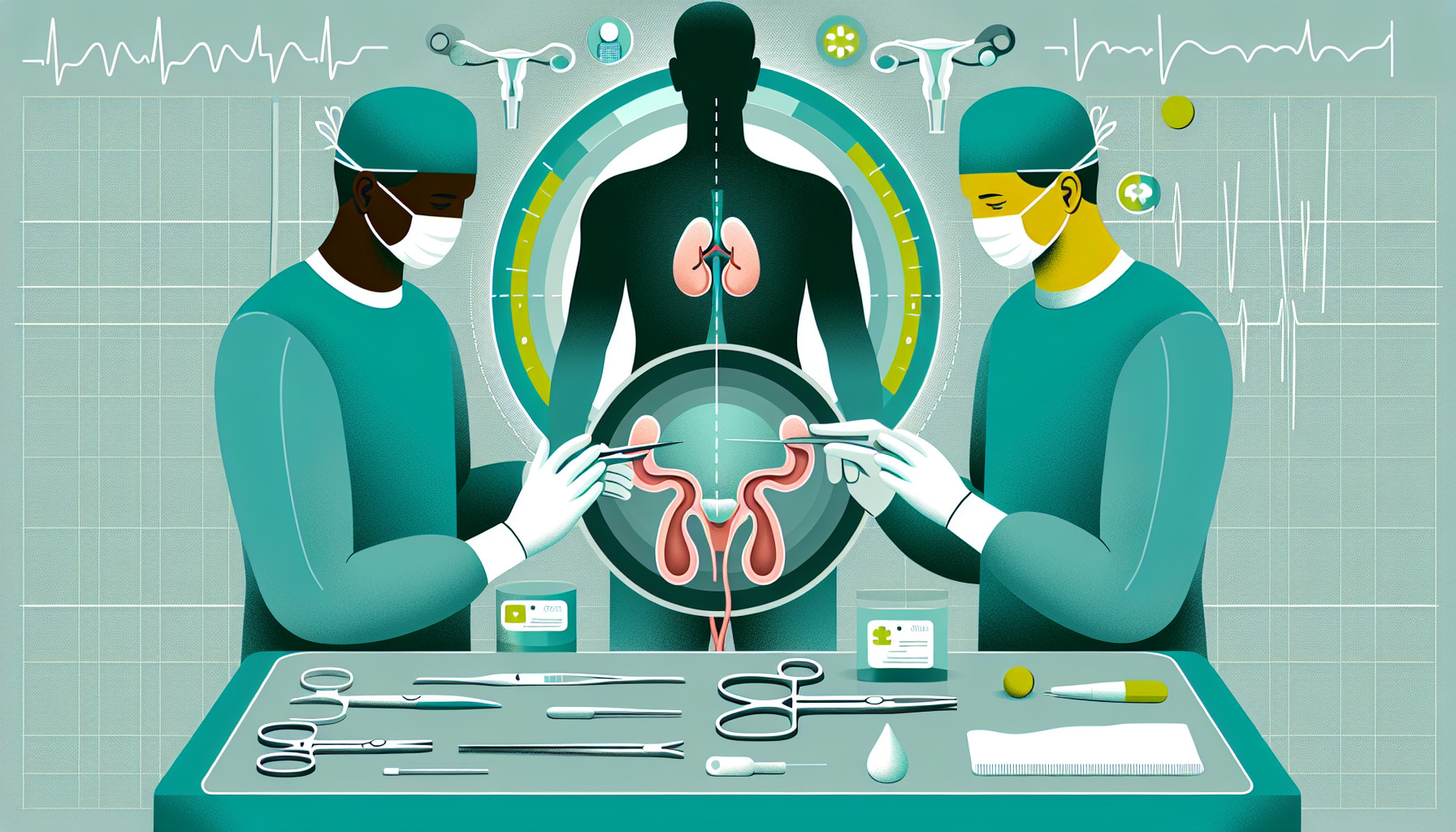Our Summary
This study looked at why some patients return to the hospital shortly after being released following a radical cystectomy (surgery to remove the bladder). Using medical data from 2009 and 2010, the researchers examined 1867 patients who underwent this surgery and found that about 28.4% of them were readmitted to the hospital within 30 days. Of these, 5.6% returned within just 3 days - these are known as ‘bounce-back’ readmissions.
The researchers found that these bounce-back patients had higher rates of stomach and wound issues, and they stayed in the hospital longer both during their initial stay and when readmitted. The researchers also used a measure called the LACE score to predict who might be readmitted, but the score was not helpful in this case.
The study concluded that one in five readmissions happens within the first 3 days after the patient was discharged. The data suggests that these bounce-backs are likely due to issues that were present when the patient was discharged. However, the researchers found that traditional risk factors and tools used to predict readmissions were not effective in predicting these bounce-back cases. Therefore, new strategies are needed to identify potential problems before the patient is discharged, in order to reduce these early readmissions.
FAQs
- What percentage of patients were readmitted to the hospital within 30 days after undergoing a radical cystectomy?
- What were the common issues found in bounce-back patients who returned to the hospital within just 3 days?
- What does the study suggest about the effectiveness of traditional risk factors and tools in predicting bounce-back cases after a radical cystectomy?
Doctor’s Tip
A helpful tip a doctor might tell a patient about cystectomy is to closely follow post-operative care instructions and to report any unusual symptoms or concerns immediately to their healthcare provider. By closely monitoring their recovery and seeking prompt medical attention if needed, patients can help reduce the risk of early readmission following surgery.
Suitable For
Patients who are at higher risk for bounce-back readmissions after a radical cystectomy may include those with stomach issues, wound complications, and those who had longer initial hospital stays. Additionally, patients with underlying health conditions or other factors that may increase the risk of postoperative complications may also be recommended for cystectomy. It is important for healthcare providers to closely monitor these high-risk patients and provide appropriate care and support to prevent unnecessary readmissions.
Timeline
Before cystectomy:
- Patient is diagnosed with bladder cancer
- Patient undergoes various tests and treatments to determine the stage and severity of the cancer
- Patient and healthcare team discuss treatment options, including cystectomy
- Patient undergoes pre-operative preparations, such as blood tests, imaging scans, and consultations with specialists
- Patient undergoes the cystectomy surgery, which typically involves removing the bladder and creating a new way for urine to leave the body (such as a urinary diversion)
After cystectomy:
- Patient stays in the hospital for recovery and monitoring
- Patient may experience pain, discomfort, and side effects from the surgery
- Patient receives post-operative care, such as pain management, wound care, and rehabilitation
- Patient learns how to manage their new way of urinating and adjusts to life without a bladder
- Patient is discharged from the hospital and continues recovery at home
- Patient follows up with healthcare team for monitoring and support
- Patient may experience complications or side effects that require readmission to the hospital, such as infection, bleeding, or issues with the urinary diversion
Overall, the timeline before and after cystectomy involves a series of medical procedures, emotional adjustments, and ongoing care to ensure the best possible outcome for the patient.
What to Ask Your Doctor
Some questions a patient should ask their doctor about cystectomy include:
- What are the common complications or issues that can arise after a cystectomy surgery?
- How can I best prepare for the surgery to reduce the risk of complications?
- What symptoms should I watch out for after the surgery that may indicate a problem?
- How often should I follow up with you after the surgery for monitoring and check-ups?
- Are there any specific lifestyle changes or precautions I should take after the surgery to promote healing and prevent complications?
- What is the typical recovery time after a cystectomy surgery, and when can I expect to resume normal activities?
- Are there any red flags or warning signs that I should seek immediate medical attention for after the surgery?
- What support resources are available to me during the recovery process, such as physical therapy or counseling services?
- How can I best communicate any concerns or issues that arise after the surgery with you or your medical team?
- Are there any specific factors or conditions that may increase my risk of needing to be readmitted to the hospital after the surgery, and how can we address or monitor these risks proactively?
Reference
Authors: Kirk PS, Skolarus TA, Jacobs BL, Qin Y, Li B, Sessine M, Liu X, Zhu K, Gilbert SM, Hollenbeck BK, Urish K, Helm J, Lavieri MS, Borza T. Journal: BJU Int. 2019 Dec;124(6):955-961. doi: 10.1111/bju.14874. Epub 2019 Aug 11. PMID: 31313473
